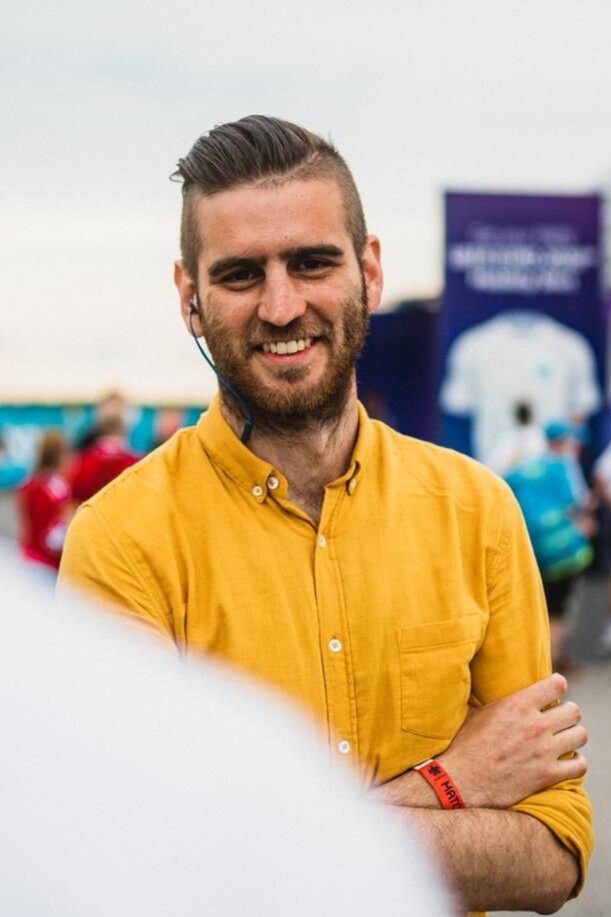OPINION - "Protecting the Next Generation"
Jonathan Harding is a sports writer who cares about the person and the player, the coach and the community. He speaks German, is a father and tries to look after the planet. Graduate of Cohort 3 of the ‘Certificate in Player Care’ and will be writing various articles for The Player Care Group.
With professional football scouting children as young as nine years old, the pressure to perform is almost as great as the desire to become a professional player. The road to a first team is long and fraught with questions. Is the expectation of youth players holistic and fair? When does having a social media account become a problem? In both cases, and in many others in youth football, the wellbeing of the individual cannot be forgotten.
You only need to be 13 to register for most social media accounts, which means even for most U18s this is not a question of parental consent. Nevertheless, a digital presence on a social media platform - often seen as a requirement for existence in the modern era - makes this more complicated. Generating hype around U18s with posts about contract signings or full of impressive game statistics may be sold as a necessary part of trying to get noticed but what about the moral impact of using a digital profile to create a professional, sporting expectation around a child?
Clubs should be proactive about how they handle protecting their youngest players, and the increasing presence of club mental health and wellbeing managers is encouraging. The work of agents though, requires deeper investigation.
Largely unregulated, agents have a great impact on both a player’s future as well as their wellbeing. There are questions to be asked about how some agents balance asset management with mental health. However, FIFA’s recent plans to increase regulation, including implementing a transfer payment cap and limiting multiple representation, was met with the threat of legal action by leading agents.
Perhaps the wrong numbers are in focus. It wasn’t long ago that Kai Havertz wasn’t in the Leverkusen first-team squad because he had exams to take. Luke Matheson had to do the same the day after scoring for Rochdale at Old Trafford. Players who are under 18 are children and should be considered as such, whether they’re a long way from the professional game or in the first team.
Despite being just 16 years old, Youssoufa Moukoko is in Borussia Dortmund’s first team. After scoring a hatful of goals for the club’s youth teams, Moukoko trained with the first team aged 15 in January 2020. By the time he became the youngest Bundesliga player in history last season, when he made his debut one day after his 16th birthday, the hype around him had grown so great that it was almost unbearable.
Perhaps it was no surprise then that in August 2021, Moukoko revealed in an interview with local German newspaper “WAZ” that the pressure he felt when he stepped onto the senior stage last year nearly made him quit the sport.
Support from coaching staff helped to keep him stable but that Moukoko felt ready to walk away under the pressure of expectation says a lot about expectation management and pressure in the world’s most popular sport. Playing at such a high level at such a young age often makes it easier to talk about Moukoko’s potential rather than his current ability, but in both cases it’s that he’s still a boy that should be the focus.
And being just a child means entering the first-team stage is a huge step. Add to that the reported million-dollar deal he signed with Nike in 2019, the near one million followers on Instagram and the fact Moukoko will be included on the newest release of the FIFA video game for the first time later this summer, and it’s clear to see why the noise can get so loud, so quickly for a young person. Borussia Dortmund must tread carefully and responsibly.
Of course, clubs and agents are not alone in the battle to make sensible decisions about social media use and expectation management. Headlines need not be sensationalised, highlight reels should be more realistic and public expectation could also be reeled in somewhat. However, at a time when awareness about the needs of the person now match that of the player, football has to make sure it protects the very people who are the lifeblood of the sport.
Jonathan Harding is a sports writer who cares about the person and the player, the coach and the community. He speaks German, is a father and tries to look after the planet. Graduate of Cohort 3 of the ‘Certificate in Player Care’ and will be writing various articles for The Player Care Group.

